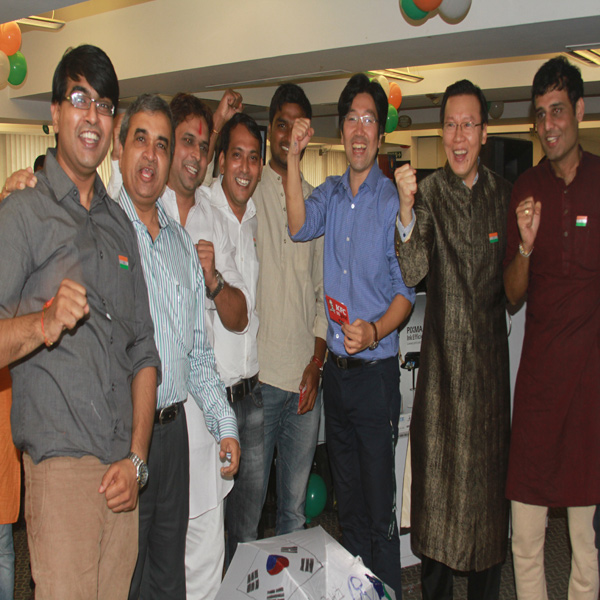Providence Equity to buy out Star India from Star CJ venture
Mumbai: Star India has been getting out of non-core activities to focus on its broadcasting (entertainment and sport
By Papri Das
When South Korean expat and Shop CJ head of marketing Donald Kwag first came to India in 2007 for a market analysis, he was blown away by ?diverse cultures, legacy of great freedom fighters and beautiful landscapes.?
In a tete-a-tete with Indiantelevision.com?s Exec Lifestyle, Kwag opens up on the challenges he faced in understanding the Indian consumer, and his tryst with Hinglish
What made you come to India?
I was working in the marketing and new business development team for CJ O Shopping in Korea, when the company decided to expand their business overseas. And India was one of the important markets. I was sent here in 2007 with my other CJ colleagues. We studied the market for about two years, and what we saw amazed us about this country. Based on our research, we launched our channel in 2009.
What are your chief responsibilities as the head of marketing?
In my current role as the head of marketing, Shop CJ India, I am responsible foR strategising business plans for the channel and the website. I am also responsible for analysing sales and marketing activities of the business vis-?-vis advertising, sales, promotion, public relations, product development, pricing and channel distribution.
How difficult was it to understand consumer behaviour in India?
It was a challenging job because unlike other countries, in India, if you travel 100 kilometres - you see people with different language, culture, festivals etc. Needless to say the buying pattern also varies. When we came to India for the first time, we had a very limited understanding of Indian consumers; hence it baffled us even more.
To compensate for our lack of understanding, we did a lot of research, studied market reports from recognized agencies, travelled beyond Mumbai, and even visited festivals like the Kumbh Mela. That gave us a first-hand understanding of Indian customers and their behaviour.
How important is culture in dictating the buying pattern of a place?
Yes, culture is an aspect, which affects buying behaviour. Factors like buying season, decision influencers and product configuration etc. are a part of culture.
We have observed that especially in the case of female category products like saris, jewellery and cosmetics.
For example, Indian women tend to discuss and buy a product together with their sisters, aunts, neighbour or female colleagues. This helped us build a product configuration. We started making a multiple pack deal like a pack of 10 saris to sell on our channel. One would think that something like that would fail. However we started getting a very good response for the same.
How did you adjust to the work culture here? How different is it from that of Korea?
I work with a wonderful team here, even if there are language and culture barriers, they understand my vision and work expectations.
South Koreans are workaholics, punctual and compliant. We work for hours and with pin drop silence at the work place. Also, in South Korea, people do not switch their jobs too often. Their average time spent in a company is at least five - seven years. Still, I like the kind of professional mind-sets and ownership that Indians have and hence it was not very difficult to adjust with respect to daily work life here.
How do you spend time beyond your work hours?
Shop CJ is growing with a fast pace and I always need to be on my toes. Hence most of my day is occupied with work. I spend around 12 hours in office on weekdays. I even come to office on weekends. I enjoy my work thoroughly. On Sundays, I make it a point to visit the church and sometimes I play golf with friends and colleagues. We used to hang out at the Wellington Club in South Mumbai, and often visit Chinese and Korean restaurants in Bandra.
Have you adjusted to the local cuisine?
I would say that overall food flavour in India is similar to S. Korea. We also eat spicy food made with multiple stages of preparation. Hence it was not very difficult to cope up with Indian food. So yes, I have tried them. Moreover, my wife had been cooking Korean food for my family, so we enjoy the regular Korean cuisine at home.
Did you learn any Hindi during your stay in Mumbai?
Yes, if course. It was important for me to understand Hindi as our channel is Hinglish. I am familiar with frequently spoken words like Namastey, shukriya, thik hai etc. I even use them often.


 switch
switch
 switch
switch